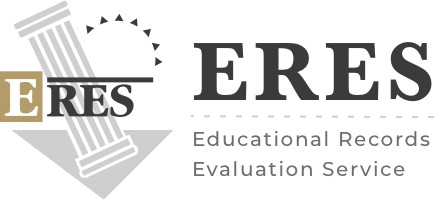Blog
F-1 Student Visa: Requirement of a Credential Evaluation

When applying to U.S. colleges, universities, or other educational institutions for admission to degree programs, especially if your previous education was completed outside the United States, you may need a credential evaluation. This evaluation helps the U.S. institution assess your foreign educational credentials' level, content, and equivalency to their own academic standards. It ensures that you meet the prerequisites for the program you are applying to.
For F-1 student visa applicants, a credential evaluation is typically required when submitting educational documents, such as transcripts and diplomas, from institutions outside the United States. A credential evaluation aims to assess the equivalency of foreign educational credentials to U.S. educational standards. This helps the U.S. educational institution and immigration authorities understand the level and content of education you have completed in your home country.
When is a credential evaluation required for F-1 student visa application?
Here are some scenarios when you may need a credential evaluation for your F-1 student visa application:
1. Higher Education in the US
One of the primary reasons why F-1 student visa applicants may need a credential evaluation is when applying to U.S. colleges, universities, or other educational institutions for admission to degree programs. Many international students come from diverse educational systems worldwide, each with its structure, grading scale, and curriculum. Consequently, U.S. institutions require a standardized method to assess the equivalency of foreign educational credentials to determine eligibility for admission.
A credential evaluation for higher education is an important tool, helping U.S. institutions understand the level and content of education completed by the applicants from different countries. This process helps admissions officers make informed decisions about whether the applicant’s academic background aligns with the F1 visa requirements and prerequisites of the desired program.
With a credential evaluation, admissions committees might be able to accurately evaluate and compare the educational achievements of applicants from various countries.
2. Transfer of Credits
A credential evaluation is essential for students who have already completed coursework at a foreign institution and are looking to transfer credits to a U.S. institution. This evaluation facilitates the process of determining which previously earned credits can be applied toward the student’s degree program in the United States.
For example, if you have a foreign high school diploma, a Foreign High School Diploma Evaluation could be pivotal for many students seeking to optimize their academic journey. This evaluation delves into the specifics of your foreign high school coursework, deciphering the educational landscape you’ve traversed. By highlighting course equivalencies and academic achievements, the evaluation assists the U.S. institution in determining which credits can be seamlessly transferred, reducing redundancy and expediting your progress toward your chosen degree.
The credential evaluation also helps academic advisors and students plan a coherent and efficient academic path, minimizing duplication of coursework and ensuring that the student remains on track to meet their academic and career goals.
3. English Language Proficiency
English proficiency is a key F1 visa requirement for success in U.S. higher education. Some U.S. educational institutions may require a credential evaluation to demonstrate English language proficiency, especially if the student’s previous education was not conducted in English. In such cases, the evaluation helps assess the applicant’s ability to comprehend and engage with academic materials in English.
A credential evaluation report can serve as supplementary evidence of the student’s language skills, bolstering their overall application for admission. By including this information, students can provide admissions committees with a more comprehensive understanding of their academic readiness to engage in coursework conducted in English.
4. Advanced Standing and Exemptions
Students seeking advanced standing, exemptions from specific prerequisite courses, or direct admission into higher-level programs may find a credential evaluation valuable. This evaluation allows U.S. institutions to determine whether the student’s previous education aligns with the academic requirements of the desired advanced placement. It ensures the student possesses the necessary basic knowledge and skills to excel in the advanced program.
By undergoing a credential evaluation, students can present a compelling case for their advanced placement, showcasing their academic achievements and demonstrating their preparedness to contribute meaningfully to the advanced coursework.
5. Optional Practical Training (OPT)
Optional Practical Training (OPT) is an employment authorization benefit that allows F-1 students to get practical experience in their chosen field after completing their degree. A credential evaluation can be crucial for students applying for OPT in verifying their educational background and eligibility for a specific employment opportunity.
By providing a credential evaluation report alongside the OPT application, students can establish a clear connection between their academic qualifications and the practical experience they seek to gain. This verification process enhances the credibility of the OPT application and demonstrates the student’s alignment with the intended job role.
6. Visa Interview and Consular Processing
While not a mandatory component of the F-1 visa application, having a credential evaluation report can positively impact the visa interview process and consular processing. The evaluation report provides an additional documentation layer supporting the legitimacy and relevance of the student’s educational background.
During the visa interview, consular officers may have a better understanding of the student’s academic history, making a case for their intention to pursue genuine educational opportunities in the U.S. This increased transparency can contribute to a smoother and more efficient visa approval process.
Bottom Line
A credential evaluation is integral to the F-1 student visa application process. It is a vital tool for international students to navigate the complexities of educational systems and showcase their academic qualifications. Whether for admissions, credit transfers, English language proficiency, advanced placement, OPT, or visa interview, a comprehensive and accurate evaluation of foreign educational credentials offers multiple benefits, from making the academic progression process smoother for students to enhancing the overall visa application experience.
As international students continue to pursue their educational dreams in the United States, a well-prepared and thorough credential evaluation can be a cornerstone of their journey toward academic success.
Reach out to Educational Records Evaluation Service today to get your credit evaluation.
Start Now
ERES
Educational Records Evaluation Service helps Non-US educated individuals to receive their US equivalences with our credential evaluation reports.
Services
Contact us
Tue - Fri: 10:00 to 16:00 ( PST )
4773 Mangels Blvd, Fairfield, CA 94534, USA.
© 2024 Educational Records Evaluation Service. All rights reserved.












